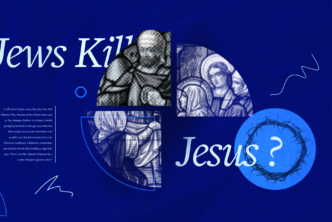Hilary of Poitiers (around AD 315–367/8) became bishop of Poitiers, in western France, in AD 350. Soon after, he was drawn into disputes over Arianism, the heretical teaching that Jesus was created by God the Father. Hilary was condemned in 356 and exiled for four years to Phrygia (a region of modern-day Turkey). During that exile, he argued against Arianism at the Council of Seleucia. 1
The clarity of his theological understanding has made him one of the most widely respected Latin theologians.
The gifts of the magi
Hilary is one of the earliest Latin writers whose work is still available today. His best-known works are the 12 books of De Trinitate (“On the Trinity,” written in opposition to the Arians). We also have two of his commentaries—one on the Psalms and one on the Gospel of Matthew. In his commentary on Matthew, Hilary discusses the account of the magi (Matt 2:1–12), associating the appearance of pagan wise men with the revealing of the gospel to the gentiles. He understands the three gifts of the magi as reflecting a threefold role of Christ as King, God, and human. Based on this idea, he looks ahead to Christ’s death, resurrection, and judgment.
The appearance of the star that the Magi first apprehended (Matt 2:1–2) reveals that the pagans were soon to profess belief in Christ. Men long opposed to a knowledge of divine understanding were about to understand that light, which shone forth the moment it appeared.
Then there follows the offering of gifts (Matt 2:11), which represented their awareness of Christ’s full identity: the gold proclaims him as King, the incense as God, the myrrh as man. And so through the Magi’s veneration [of him], the understanding of every mystery is summed up concerning his death as man, of his resurrection as God, about his judgment as King. Just as the Magi were prohibited from retracing their route and returning to Herod in Judea (Matt 2:12), so we ought never to look to Judea for our knowledge and learning. Instead, we are admonished to refrain from following the “route” of our former life by placing all our salvation and hope in Christ.2
This article first appeared in the November/December 2019 issue of Bible Study Magazine. The title has been adapted by an editor.
Image credit: The Adoration of the Magi by Edward Burne Jones, commons.wikimedia.org
- F. L. Cross and Elizabeth A. Livingstone, The Oxford Dictionary of the Christian Church, 3rd rev. ed. (Oxford: Oxford University Press, 2005), 774.
- Hilary of Poitiers, Commentary on Matthew, ed. David G. Hunter, trans. D. H. Williams, The Fathers of the Church 125 (Washington: Catholic University of America Press, 2012), 46.




